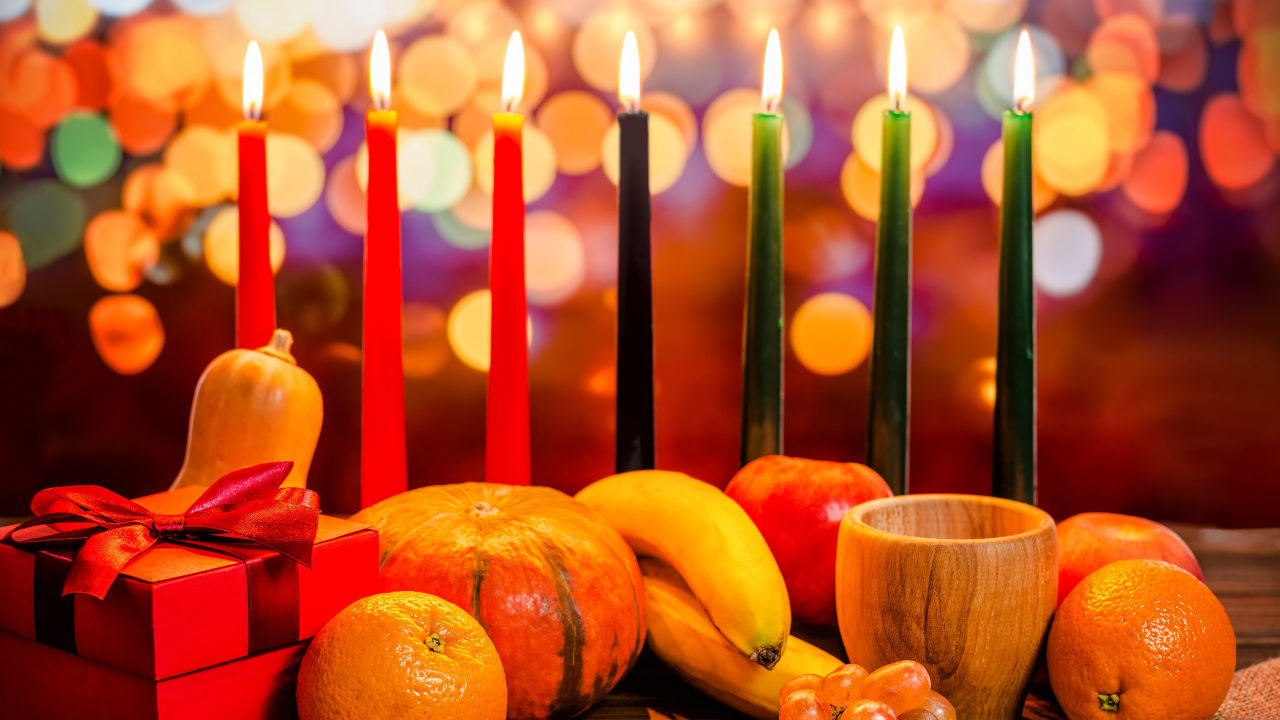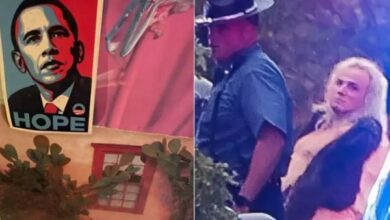Every Year, the African-American community in the United States celebrates the last seven days of the year as a cultural celebration called Kwanzaa. Let us tell you, African-Americans, who are also referred to as Afro-Americans or Black Americans are the people considered to be ancestors of those Africans who were brought into the United States as slaves between the 17th century and early 19th century.
Kwanzaa doesn’t have a long history, it was started by Dr Maulana Karenga in 1966 during the Black Freedom Movement in the united states. Black Freedom Movement, also known as Civil Rights Movement was a social justice struggle started by Black Americans to end racial discrimination in the country and gain equal rights under the law. The movement took place mainly between the 1950s to 1960s.
Let us tell you, Dr Maulana Karenga is an American professor of Africana studies, activist, and author. At the time of the formation of Kwanzaa, Karenga stated that his goal behind Kwanzaa was to “give blacks an alternative of Christmas and give them an opportunity to celebrate themselves and their history, instead simply imitate the practice of the dominant society.”
Kwanzaa 2021 Dates
Kwanzaa celebration starts the next day of Christmas, 26 December, and lasts on 01 January. The 6th day of Kwanzaa has special significance as it is celebrated as a communal feast called Karamu.
Symbols of Kwanzaa or Nguzo Saba
The symbols of Kwanzaa or Nguzo Saba represents the African culture.
- Kinara (candle holder)
- Mishumaa Saba (seven candles)
- Mazao (crops)
- Mahindi (corn, represents the children celebrating)
- Kikombe cha Umoja (unity cup, represents saying “thankyou” to the ancestors)
- Zawadi (Gifts)
7 Principles of Kwanzaa
The principles of Kwanzaa are primarily known as “Nguzu Saba – the seven principles of African Heritage”.
- Umoja (Unity): Teaches to maintain unity in the family, community, nation, and race.
- Kujichagulia (Self-Determination): Teaches to define and name ourselves, as well as to create and speak for ourselves.
- Ujima (Collective Work and Responsibility): Teaches to build and maintain our community together and make our brothers’ and sisters’ problems our problems and to solve them together.
- Ujamaa (Cooperative Economics): Teaches to build and maintain our own stores, shops, and other businesses and to profit from them together.
- Nia (Purpose): Teaches to make our collective vocation the building and developing of our community in order to restore our people to their traditional greatness.
- Kuumba (Creativity): Teaches to do always as much as we can, in the way we can, in order to leave our community more beautiful and beneficial than we inherited it.
- Imani (Faith): Teaches to believe with all our hearts in our people, our parents, our teachers, our leaders, and the righteousness and victory of our struggle.
Celebration
To celebrate Kwanzaa people decorate their houses with some traditional things like – Kante, a Ghanaian textile. The celebration also includes singing, dancing, storytelling, poetry reading, African drumming, and feasting. The above mentioned 7 principles are also discussed throughout the days.

 ‘All Eyes On Rafah’ Becomes A Rage On Social Media Platforms, What The Slogan Means For The World
‘All Eyes On Rafah’ Becomes A Rage On Social Media Platforms, What The Slogan Means For The World Cardi B Goes Against Candance Owens Who Suggests Adult Content Should Be Banned
Cardi B Goes Against Candance Owens Who Suggests Adult Content Should Be Banned Japanese Man Who’s A Dog Is Now Thinking Of Becoming Panda, Cat or Fox
Japanese Man Who’s A Dog Is Now Thinking Of Becoming Panda, Cat or Fox Dan Harrison Community Complex: What Led To Its Downfall?
Dan Harrison Community Complex: What Led To Its Downfall? ‘All Eyes On Rafah’: Indian Celebs like Kareena Kapoor, Priyanka Chopra, Alia Bhatt Show Up Support For Palestine As Death Toll in Rafah Rises
‘All Eyes On Rafah’: Indian Celebs like Kareena Kapoor, Priyanka Chopra, Alia Bhatt Show Up Support For Palestine As Death Toll in Rafah Rises  Israeli Strikes in Rafah Kills At Least 45
Israeli Strikes in Rafah Kills At Least 45 Papua New Guinea Landslide: Over 2000 Deaths, 1000 Missing in Catastrophe
Papua New Guinea Landslide: Over 2000 Deaths, 1000 Missing in Catastrophe Braintree Stabbing Suspect, Jared Ravizza’s Alleged ‘Obama Hope’ Post Controversy Explored
Braintree Stabbing Suspect, Jared Ravizza’s Alleged ‘Obama Hope’ Post Controversy Explored